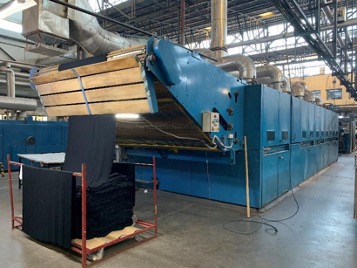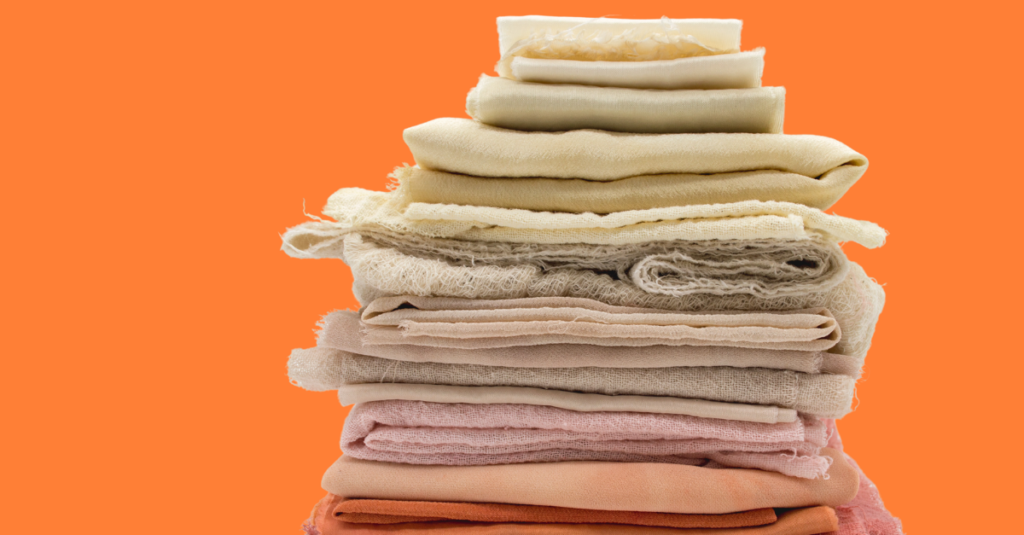Current fashion supply chains are highly polluting and wasteful, making the fashion industry one of the most unsustainable industries. In order to measure and quantify the sustainability impacts of a manufacturing facility, the SAC’s Higg Facility Environmental Module (FEM) is a valuable tool. The Higg FEM offers standardized measurements for sustainability and helps manufacturers, brands, and retailers identify and prioritize opportunities for performance improvements through the use of a common language.
However, acting on the data can sometimes be a financial challenge for manufacturers. Although sustainable technology solutions exist today, manufacturers often lack the knowledge or capital to invest in such machinery to improve their production processes. The Good Fashion Fund (GFF), a first-of-its-kind initiative by Laudes Foundation, was established to create systemic change in the textile and apparel industry by encouraging mainstream uptake of impactful and disruptive production technologies. The fund provides long-term USD loans to apparel and textile manufacturers in India and Bangladesh to enable them to implement innovative and sustainable technologies.
The first loan by the GFF was made to Pratibha Syntex in 2021. By the first monitoring visit in November 2022, the impact results surpassed the targets of a minimum of 50% savings. At the end of 2022, another loan was signed with Progress Apparels in Dhaka, and the GFF expects to close three more loans—one in Bangladesh and two in India—by the end of the quarter. The investments are diverse and relate to the enhancement of effluent treatment plants, the adaptation of state-of-the-art spinning and weaving equipment, the installation or replacement of washing unit equipment, and the expansion of unique waste-to-yarn recycling facilities.
The technology we finance relates primarily to equipment for dyeing, washing, printing, and wastewater treatment and reduces the use of hazardous chemicals, water, or energy in the production process. Every GFF investment should lead to a minimum of 50% reduction in consumption of one of our three environmental goods: Good Energy, Good Water, or Good Materials (incl. chemicals).
The GFF is unique in its focus on sustainable and ethical fashion and we’re proud to be the first financial investor to join the SAC’s global membership, utilizing the Higg FEM as a key part of our environmental due diligence process. The Higg FEM measures the exact environmental impacts of a facility’s operations that we aim to improve, such as water use, energy consumption, greenhouse gas emissions, waste management, and chemical management. It aligns perfectly with the GFF’s objectives.
In particular, the Higg FEM assesses a facility’s overall Environmental Management Systems and specifically gathers data on energy use, greenhouse gas emissions, water use, wastewater, air emissions, waste management, and chemical management. The score not only reflects absolute levels but particularly focuses on encouraging improvements and setting baseline levels and targets.
Having a verified Higg FEM score allows us at the GFF to limit our environmental due diligence efforts to desktop research and interviews conducted by our advisors Sphera and TUV Rheinland. When a facility is new to the Higg Index, our due diligence is more extensive and includes a site visit, but, ultimately, the manufacturers and operators in which we invest must receive a verified Higg FEM score. This allows the company to create value from the exercise and publicly communicate the results.
It is a complex analysis and will require continuous development. We are confident the SAC will maintain and leverage its close partnership with its member retailers, brands, manufacturers, and other stakeholders to continue improving and increase levels of adoption.
Moreover, the GFF uses the Higg FEM score, not only for the initial investment decision but also to better monitor continuous performance over the lifetime of our partnership with the manufacturer. As the Higg Index becomes more widely recognized and adopted, we will be able to more effectively communicate the sustainability performance of the portfolio companies to our investors. More importantly, it will help the manufacturers communicate their improved sustainability performance to consumers. The investments funded by the GFF typically improve a facility’s Higg FEM score substantially.
Our partner at TUV Rheinland, Rakesh Vazirani, Global Head of Sustainability Services, Consumer Products, noted: “Every facility we encounter for environmental due diligence is eager to make improvements to positively impact its environmental performance KPIs/metrics to showcase its progress, to explore cost savings, to highlight its uniqueness to customers, and to prepare for future regulation. Relying on existing industry frameworks like Higg FEM allowed facilities’ performance to be measured based on a harmonized framework; and GFF’s approach to fund improvements to make an impact fit into the wider mission of factories, local governments, and brands. We look forward to the continuous evolution of the Enhanced Due Diligence (EDD) framework to add efficiency to the process, and further alignment with European Green Finance taxonomy.“
Of course, the assessment and improvement of working conditions and labour rights are equally important aspects of the GGF’s objectives. Currently, the social due diligence is being performed by Fairwear Foundation, and important topics such as labor policies, health and safety conditions, workers committees, adequate administration and execution of contracts, salary management and working hours, grievance mechanisms, and anti-discrimination policies are being reviewed on site. In one of the more recent transactions, for the first time, the social due diligence included assessing the company’s verified scores of the Higg Facility Social & Labor Module (FSLM). Given social audits are at least as intensive for a company to accommodate as the environmental due diligence, we are exploring the possibilities of the Higg FSLM verification as more brands and manufacturers adopt the standard.
The GFF is dedicated to creating systemic change in the fashion industry, not only by the direct impact of its investments but also by sharing experiences and lessons learned widely. We aim to create partnerships with other actors in the fashion industry and financial sector, drive awareness of opportunities for sustainable technologies, and catalyze finance. GFF will continue to report on its investee companies extensively, encouraging further use of standardized measurements including the Higg FEM and Higg FSLM scores.







